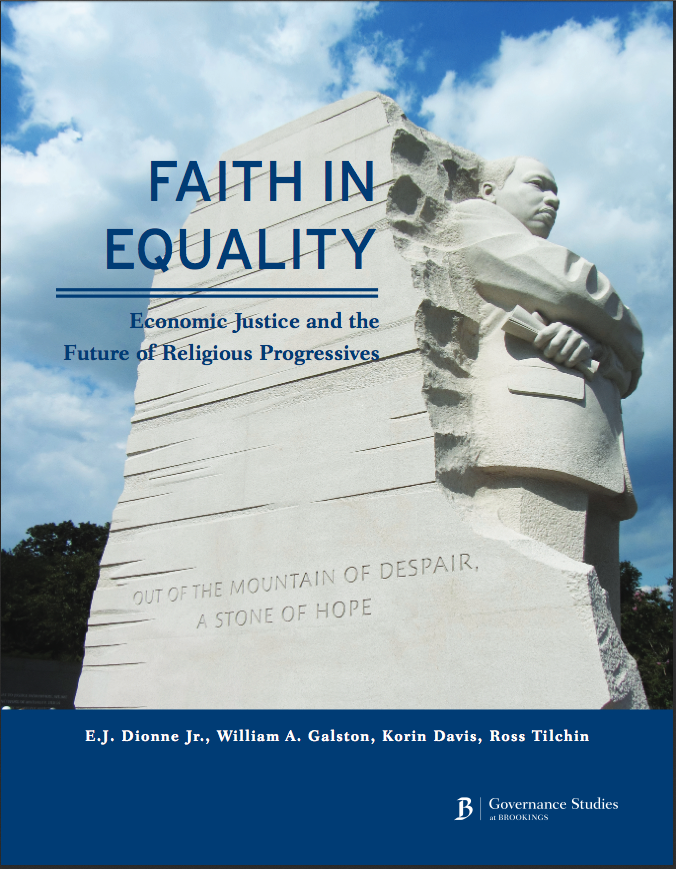 How can the faith and mission of Rev. Martin Luther King Jr. or the Occupy Movement sporting a golden calf on Wall Street inform us about the role of religion in the movement for economic justice? The Brookings Institution released a new report on Thursday, “Faith in Equality: Economic Justice and the Future of Religious Progressives,” which sought to tackle this question head on.
How can the faith and mission of Rev. Martin Luther King Jr. or the Occupy Movement sporting a golden calf on Wall Street inform us about the role of religion in the movement for economic justice? The Brookings Institution released a new report on Thursday, “Faith in Equality: Economic Justice and the Future of Religious Progressives,” which sought to tackle this question head on.
The report comes at a time when religious views still tend to be associated with more conservative political views, as the U.S. is witnessing record levels of economic inequality, and as faith leaders like Pope Francis boldly call for the reform of economic systems on moral grounds. Both the report and the panelists seemed acutely aware of this climate, as they drew heavily from joint-research from PRRI and Brookings in order to highlight the growing concern among Americans, including religious Americans, about issues of inequality, immigration, and poverty. Opening comments by E.J. Dionne, Jr. highlighted the central findings of the report, namely, that while religious progressives will never constitute the kind of homogenous coalition represented by the religious right, they nonetheless remain a diverse and important voice in the political discourse.
A variety of panelists gave intimate perspectives on the report’s findings. Dorian Warren spoke about the steady decline of unions and progressive institutions that represent poor and working class Americans, but drew analogies between the labor movement and religious congregations, both of which he argued are self-financed “schools of democracy.” Michael Weir called for an authentic religious perspective on politics that involves incorporating the dual notions of “being in the world, but not of it” as mutually essential. And Ross Douthat of the New York Times argued that religious voices of both political parties have the potential to create a new center to American politics as an alternative to bipartisanship driven by Wall Street interests.
The Brookings report discusses the challenges that religious progressives face in building coalitions for economic justice, but highlights the opportunities of forging new narratives, expanding alliances, and building on previous successes in order to usher in a new wave of faith-based activism. Sr. Simone Campbell, well known for her role in leading the Catholic group Nuns on the Bus provided closing remarks that included her desire to build a bridge forward and what she described as the need to “speak with a heart of clarity” about economic issues that have concrete effects on people’s lives.
The report was authored by E.J. Dionne Jr., William A. Galston, Korin Davis, and Ross Tilchin, with the Governance Studies Program at Brookings.